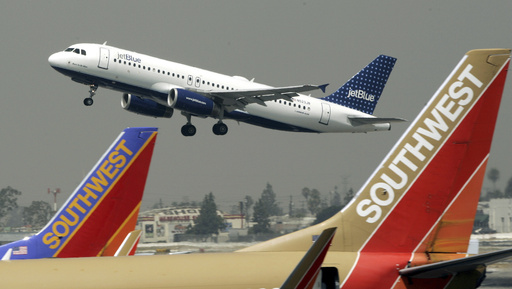SACRAMENTO, Calif. — The state of California has announced a collaboration with Airlines for America, a group that includes major U.S. airline carriers such as Delta, JetBlue, and United, aimed at enhancing the accessibility of sustainable aviation fuels. The partnership, disclosed by the California Air Resources Board, seeks to supply 200 million gallons of sustainable aviation fuel within California by the year 2035. This volume is projected to satisfy around 40% of the demand for air travel within the state, according to agency officials.
Davina Hurt, a member of the board and chair of the San Francisco Bay Area’s Air Quality Management District, expressed optimism regarding this commitment, highlighting its potential to combat climate change and improve air quality across the region. Speaking during a news conference at the San Francisco International Airport, Hurt emphasized the collaborative effort’s significance, stating, “We are not merely advancing cleaner fuel alternatives, but initiating a positive wave of change that will impact the Bay Area and extend throughout California and beyond.”
Currently, California generates approximately 11 million gallons of sustainable aviation fuel each year, reports the Air Resources Board. The state intends to utilize a combination of fuel produced in California and other regions to achieve its ambitious new goals.
This initiative follows criticisms from airline personnel and advocates who claim that the state has not sufficiently addressed the health risks associated with jet fuel emissions. Last year, staff from the Air Resources Board had included updates regarding jet fuel in the proposed changes to California’s low carbon fuel standard, which is designed to facilitate the transition to cleaner transportation fuels. However, jet fuel was subsequently excluded from these proposed amendments, with the board scheduled to cast a vote on the updates next week.
In recent years, various policies have been enacted within California to phase out the sale of new fossil-fuel powered vehicles, including cars, trucks, trains, and lawn equipment. Additionally, the Biden administration has implemented targets aimed at reducing emissions from jet fuel, including a 2021 goal to diminish aviation emissions by 20% by 2030 and to fully replace kerosene-based jet fuel with sustainable alternatives by 2050.
In 2022, aircraft were responsible for approximately 9% of emissions linked to climate change from the U.S. transportation sector, as documented by the U.S. Environmental Protection Agency. Emissions from vehicles like cars and trucks, however, represented a larger portion of greenhouse gas emissions in transportation.
California’s Governor Gavin Newsom, a Democrat who frequently cites the state’s leadership in climate initiatives, noted that this new commitment will empower both the state and the aviation industry to confront emissions directly. “This marks a significant advancement in our efforts to reduce pollution, safeguard our communities, and pave the way for cleaner air and innovative solutions to climate challenges,” he remarked in an official statement.


